Li Ye, courtesy name Ji Lan, from Wucheng (present-day Wuxing, Zhejiang), was China's first female Tea artisan and a renowned female poet in the Tang Dynasty. (She could also be considered the first female tea artisan in history.)
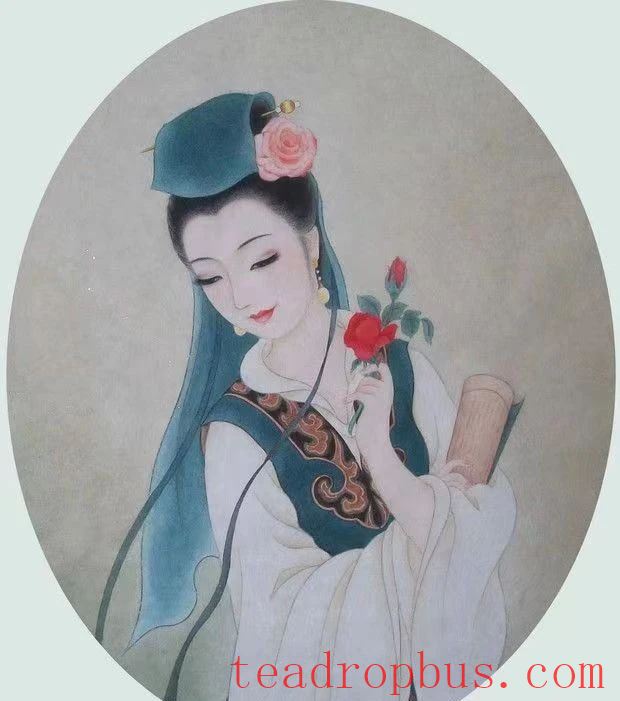
She displayed poetic talent in her childhood and later became a Daoist nun. In her later years, she was summoned to the palace and, in 784 AD, was ordered by Emperor Dezong of Tang to be beaten to death.
Li Ye is known alongside Xue Tao, Yu Xuanchi, and Liu Caichun as one of the “Four Great Female Poets of the Tang Dynasty.” She excelled in five-character verse, often writing poems for gifts and to express her feelings. The “Records of Tang Poetry” (Tang Shi Jishi) mentions that Liu Changqing referred to Ji Lan as “the female poet laureate.” Chen Zhenzhuo, a scholar of the Song Dynasty, recorded “The Collected Works of Li Ji Lan” in one volume, which has been lost; only eighteen of her poems survive today.
Li Ye had a beautiful appearance and exceptional talent, displaying poetic skills at an early age. It is said that when she was six years old, her father took her for a walk in the courtyard, where she saw a Rose vine that needed support but had none, causing it to sprawl on the ground. She wrote a poem about it, titled “Ode to the Rose Vine”: “Untimely unsupported, my thoughts are in disarray.” Although her father was amazed by his daughter's literary prowess, he felt that such thoughts were inappropriate for someone so young, and he told her mother, “This girl is very clever, but I fear she may become an immoral woman.”
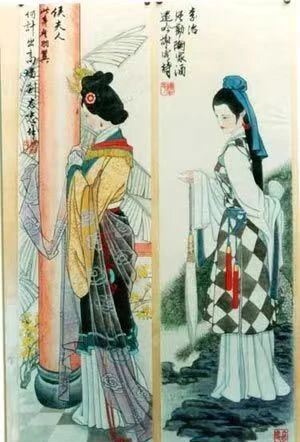
At the age of eleven, Li Ye was sent to Yuzhen Temple in Shanzhong to become a Daoist nun, changing her name to Li Ji Lan. Despite becoming a nun, she remained graceful and elegant, dedicated to calligraphy, and had a romantic disposition, enjoying witty banter. Additionally, she was skilled at playing the zither and proficient in poetic meter. Influenced by the open-mindedness of the Tang era, even Daoist temples were not entirely secluded places. Many talented and beautiful female Daoists freely socialized in temples, becoming something akin to “socialites.”
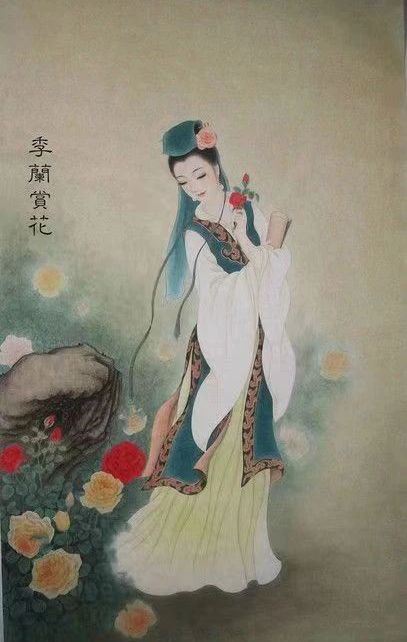
Li Ji Lan belonged to this category. Although many temples in bustling areas often had scandalous stories, Yuzhen Temple, located in a remote area, was relatively tranquil. Li Ji Lan practiced Daoism here for five years, and at sixteen, she was a graceful young woman with snow-white skin. Many literati and scholars visited the temple, some of whom were flirtatious. Upon seeing the charming and affectionate Li Ji Lan, they occasionally made bold advances. Li Ji Lan did not get angry; instead, she would reveal a coy expression, as if to say, “Though I wish to speak, my mother is watching,” which made the suitors even more infatuated. Because of this, people called Li Ji Lan a “woman of passion.”
Li Ye, China's first female tea master and a close friend of the tea sage Lu Yu, had a tumultuous and remarkable life that evokes deep emotions.
After the An Lushan Rebellion, Lu Yu left Jingling, traveling downstream along the Yangtze River through Ezhou, Huangzhou, Pengze, and finally arriving in Huzhou. Huzhou had beautiful scenery and talented people, and the tea and springs in nearby regions were excellent. After befriending Jiao Ran, Lu Yu decided to settle in Huzhou.
Through Jiao Ran's introduction, Lu Yu met Li Ye. Due to her extraordinary beauty, excellent poetry, and ability to discuss Zen and Daoism, many local celebrities were happy to befriend her.
During their first meeting, Li Ye served Lu Yu a cup of fragrant tea, but after just a glance, Lu Yu said, “I've long heard of Daoist Lady Li's reputation as a poet, but I didn't expect you to still possess common tastes.”
Li Ye was surprised: “We haven't even started talking, how can Master Lu determine that I have common tastes?”
Lu Yu replied, “It can be determined from this cup of tea!”
Li Ye was puzzled.
“You live in Wuxing, where the woodpecker ridge tea is famous throughout the world, and the purple bamboo tea from Guzhu Mountain is a tribute to every dynasty. But your tea preparation is no different from that of ordinary people, disgracing good tea.”
Li Ye was even more astonished: “Is there a distinction between common and refined tea?”
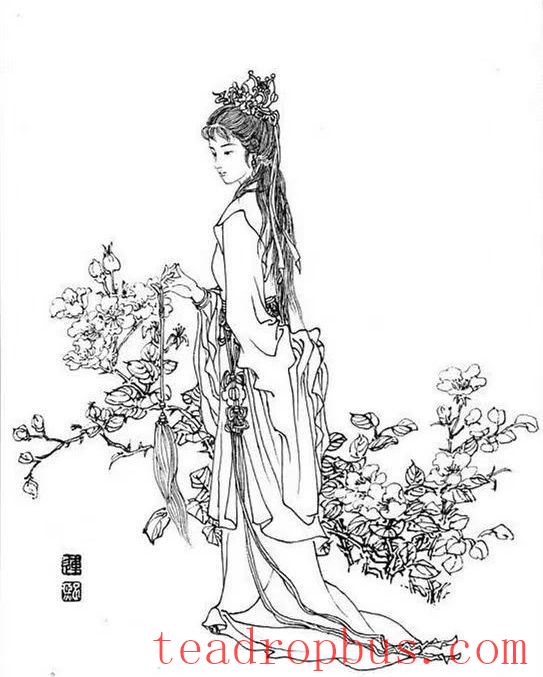
Lu Yu said, “Tea is the essence of health, capable of quenching thirst, dispelling stagnation, alleviating headaches, brightening eyesight, relieving worries, relaxing joints, and dispelling drowsiness. Long-term consumption can bring joy and enhance thought… but these are secondary. A person who understands tea must possess five beauties: the beauty of taste, vessel, fire, drink, and setting. The realm of tea is no different from poetic sentiment and Daoist heart. Only those with high realms can Brew tea that harmonizes heaven and humanity!”
Although Li Ye was greatly impressed, she still argued, “You haven't tasted this cup of tea, how can you say that I have common tastes?”
Lu Yu explained, “When water boils, small bubbles are like fish eyes, and large ones are like crab eyes. Only fish eyes and crab eyes allow the tea leaves to fully develop their flavor. You used water that wasn't fully boiled to serve me tea, causing the tea leaves to float and the aroma not to emerge, revealing that you were not calm, peaceful, or focused when brewing the tea. Isn't this the same as ordinary people?”
Li Ye seemed to gain insight and immediately bowed to Lu Yu as her teacher to learn the art of tea. That night, Lu Yu stayed in the temple for over half a month. During this time, besides discussing poetry and arts with Li Ye, he taught her the art of tea brewing, and Li Ye quickly grasped its essence. Later, Lu Yu frequently visited her to discuss tea and Dao, elevating her tea art to new heights. Soon, Li Ye's reputation for brewing tea spread far and wide.
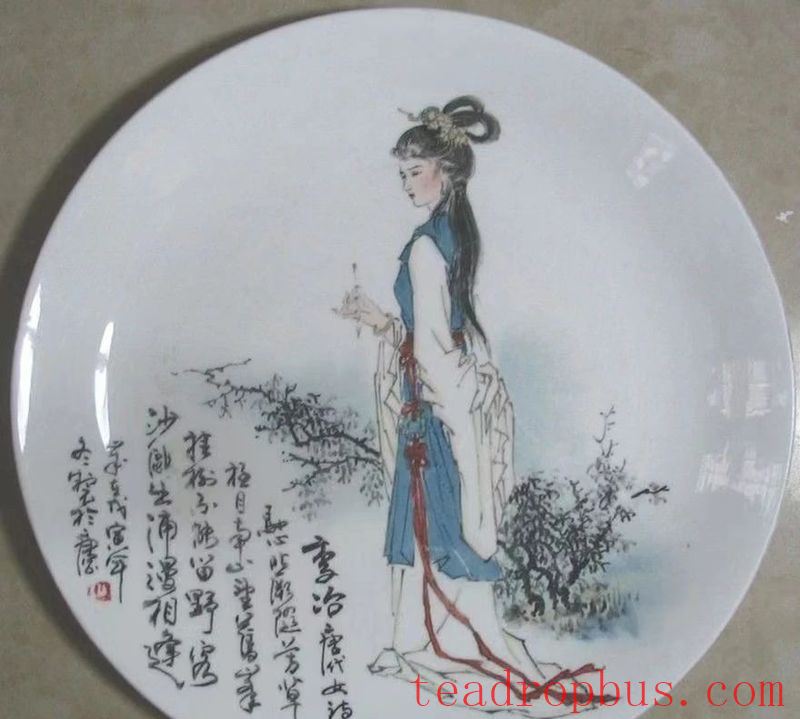
In the fourth year of Jianzhong (783 AD), Emperor Dezong of Tang heard of Li Ye's reputation for poetry and tea and specially issued an imperial decree to summon her to the capital for an audience. When Emperor Dezong met Li Ye, he was astounded by her beauty. At that time, Li Ye was already in her forties, but she had an otherworldly appearance and an extraordinary demeanor. Delighted, he forcibly kept her in the palace and favored her.
The following year, General Zhu Ci launched a coup, and Emperor Dezong hastily fled, leaving the beauties of the harem behind. After Zhu Ci entered the palace and found Li Ye, he was captivated by her refined and extraordinary charm and claimed her for himself. Li Ye, out of necessity, followed Zhu Ci.
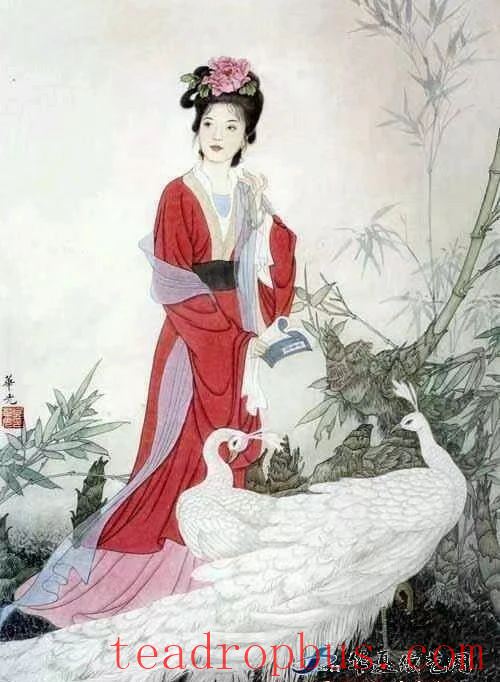
This rebellion was soon suppressed, and Emperor Dezong returned to the capital. Enraged by Li Ye's perceived disloyalty, he issued an order to execute her.
China's first female tea artisan, Li Ye, reached the pinnacle of both poetry and tea art, but unfortunately passed away under the shadow of male ignorance and tyranny, killed by ordinary people whose hearts